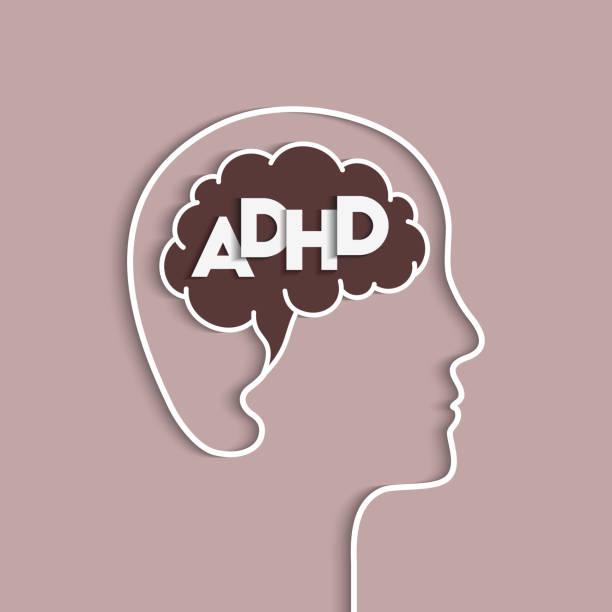The common neurodevelopmental illness known as Attention-Deficit/Hyperactivity illness (ADHD) is characterized by impulsivity, hyperactivity, and inattentional symptoms. The impairment of executive function is a crucial element of ADHD that is frequently overlooked. The cognitive processes known as executive functions help people to properly organize, concentrate, remember directions, and handle several tasks at once. This article explores the connection between executive function and symptoms of ADHD, emphasizing its significance and offering solutions to these problems.
Comprehending Executive Function
A group of mental abilities known as executive function are necessary for managing and controlling behavior. Among these abilities are:
Working memory is the capacity to store and process information quickly.
The ability to restrain urges and avoid distractions is known as inhibitory control.
Cognitive flexibility is the capacity to change viewpoints or methods of approaching an issue.
Planning and Organization: The abilities required to create plans, establish objectives, and complete tasks successfully.
Self-Monitoring
The capacity to monitor and evaluate one’s own actions and results.
Deficits in executive function play a major role in the primary symptoms of ADHD in individuals.
The Connection Between Symptoms of ADHD and Executive Function
Distracted
Working Memory Deficits: People with ADHD frequently experience difficulties with working memory, which makes it challenging for them to remember and process the information needed to finish tasks. This may show up as trouble following complicated instructions or forgetting where they were working in the middle of a task.
Sustained Attention
The inability to block out distractions and stay focused makes it difficult to stay focused for extended periods of time.
Overzealousness:
Restrictive Management Problems: Insufficient inhibitory control makes it hard to control how much physical activity you do. This shows up as excessive chatting, restlessness, and fidgeting.
Impulsive Behavior
Being unable to restrain one’s impulses leads to premature or improper behavior, which exacerbates hyperactivity.
Impulsivity
Immediate Gratification: Delays in gratification might be difficult to postpone due to executive function deficiencies, which can result in impulsive choices and trouble waiting for opportunities or rewards.
Emotional Regulation
Impulsive behavior and trouble controlling intense emotions are caused by poor executive function, which has an impact on emotional regulation.
Executive Function Deficits’ Effects
Academic Performance: Planning and Organization: Students with ADHD frequently have trouble setting up their workspaces and making plans for their assignments. Academic achievement may suffer as a result, as well as missed deadlines and incomplete assignments.
Task Initiation and Completion: It can be challenging to begin projects right away and see them through to completion, which can result in procrastination and uneven performance.
Social Relationships
Social Cues: Poor executive function can make it difficult to interpret social cues and react correctly, which can lead to strained interpersonal relationships and social misunderstandings.
Impulsivity in Social Interactions
Impulsive activities, such talking over others or interrupting them, can have a bad effect on social interactions.
Daily Life
Time Management: Ineffective time management can result in regular tardiness, missed appointments, and a general disarray in daily schedules.
Self-Care
Problems with executive function might make it difficult to stick to regular self-care practices including eating right, exercising, and maintaining good cleanliness.
Methods for Enhanced Executive Function in ADHD
Behavioral Interventions: Cognitive-Behavioral Therapy (CBT): CBT can assist people with ADHD in strengthening their problem-solving abilities, coping mechanisms, and emotional control.
Mindfulness Training: By encouraging self-awareness and emotional regulation, techniques like mindfulness meditation can enhance focus and lessen impulsivity.
Support for Education
Individualized Education Plans (IEPs): Personalized lesson plans can help students with executive function impairments by offering accommodations like extra time for exams and homework.
Assistive Technology
Programs for text-to-speech, digital organizers, and reminder applications can help with task management and organization.
Organizational Tools
Calendars and Planners: Keeping track of assignments and due dates, as well as breaking down more complex projects into smaller, more manageable chunks, can be achieved by using calendars and planners.
Checklists
Making daily checklists gives you organization and a sense of accomplishment by guaranteeing that things are remembered and finished.
Time-Management Strategies:
Time blocking: Setting aside specified periods of time for various tasks might aid in better time management and task completion.
Pomodoro Technique: This method helps you stay focused and productive by having you work for a predetermined amount of time (such as 25 minutes) and then taking a quick break.
Changes to the Environment
Reduce Distractions: Having a distraction-free workspace helps improve focus and output. This could entail putting up boundaries for work time, keeping the workstation organized, and wearing noise-canceling headphones.
Structured Routines
Creating regular daily schedules might help to bring consistency and lessen the mental strain that comes with organizing and planning.
Medication
Stimulants and Non-Stimulants: By increasing focus, decreasing impulsivity, and fostering improved cognitive performance overall, medications given for ADHD can improve executive function. A strong collaboration with a healthcare expert is necessary to choose the best drug and dosage.
Modifications to Lifestyle:
Exercise: Studies have indicated that regular exercise improves mood, lowers hyperactivity, and enhances executive function.
Balanced Diet
Eating a diet high in omega-3 fatty acids can help maintain and enhance brain health and cognitive performance.
Sufficient Sleep
Getting enough sleep is essential for optimum executive function. Developing a regular sleep schedule can enhance both the general functioning and quality of sleep.
In summary
The management and presentation of symptoms associated with ADHD are significantly influenced by executive function. Gaining knowledge into the relationship between executive function deficiencies and ADHD can be quite helpful in creating productive coping mechanisms. People with ADHD can improve their executive function and quality of life by combining behavioral therapies, educational assistance, organizational tools, time management strategies, environmental alterations, medication, and lifestyle improvements. For people with ADHD to reach their full potential and enjoy happy, productive lives, it is crucial to identify and treat executive function deficits.



